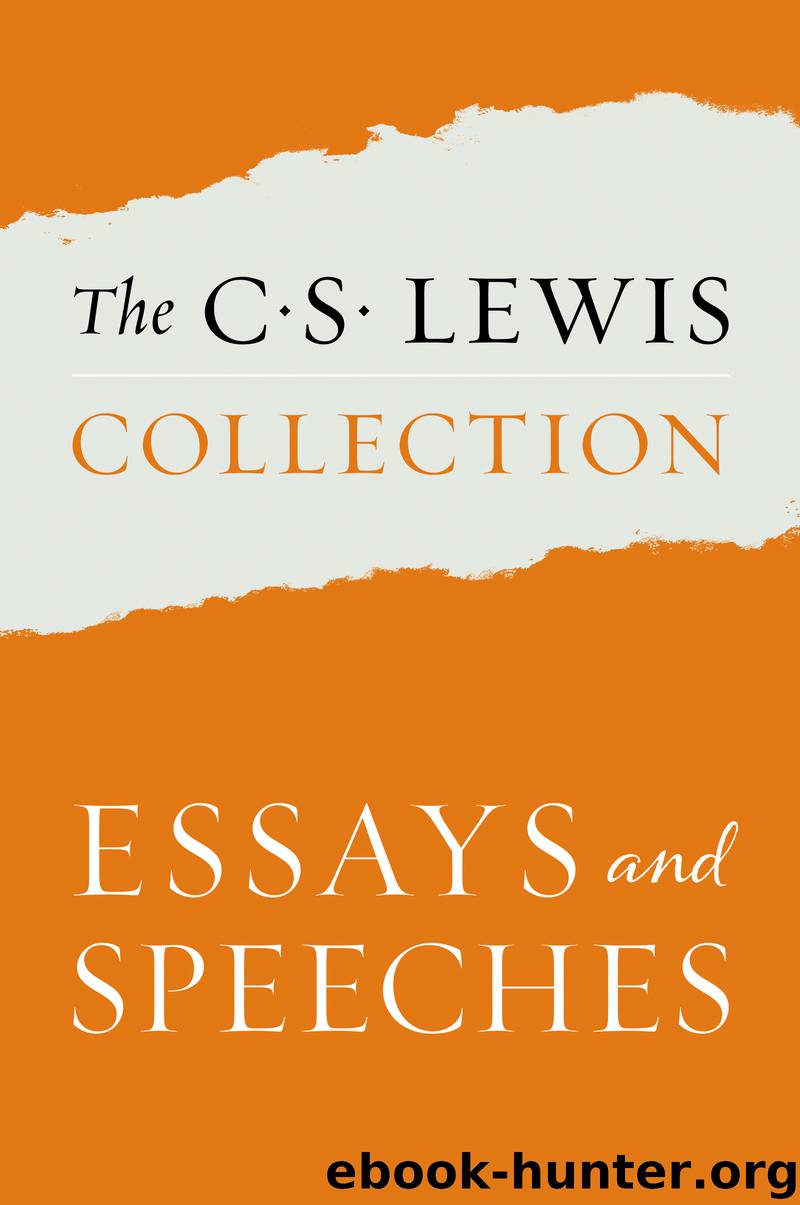The C. S. Lewis Collection: Essays and Speeches by C. S. Lewis

Author:C. S. Lewis
Language: eng
Format: epub
Published: 2018-12-30T16:00:00+00:00
WHY I AM NOT A PACIFIST
The question is whether to serve in the wars at the command of the civil society to which we belong is a wicked action, or an action morally indifferent, or an action morally obligatory. In asking how to decide this question, we are raising a much more general question: how do we decide what is good or evil? The usual answer is that we decide by conscience. But probably no one thinks now of conscience as a separate faculty, like one of the senses. Indeed, it cannot be so thought of. For an autonomous faculty like a sense cannot be argued with; you cannot argue a man into seeing green if he sees blue. But the conscience can be altered by argument; and if you did not think so, you would not have asked me to come and argue with you about the morality of obeying the civil law when it tells us to serve in the wars. Conscience, then, means the whole man engaged in a particular subject matter.
But even in this sense conscience still has two meanings. It can mean (a) the pressure a man feels upon his will to do what he thinks is right; (b) his judgment as to what the content of right and wrong are. In sense (a) conscience is always to be followed. It is the sovereign of the universe, which “if it had power as it has right, would absolutely rule the world.” It is not to be argued with, but obeyed, and even to question it is to incur guilt. But in sense (b) it is a very different matter. People may be mistaken about wrong and right; most people in some degree are mistaken. By what means are mistakes in this field to be corrected?
The most useful analogy here is that of Reason—by which I do not mean some separate faculty but, once more, the whole man judging, only judging this time not about good and evil, but about truth and falsehood. Now any concrete train of reasoning involves three elements: Firstly, there is the reception of facts to reason about. These facts are received either from our own senses, or from the report of other minds; that is, either experience or authority supplies us with our material. But each man’s experience is so limited that the second source is the more usual; of every hundred facts upon which to reason, ninety-nine depend on authority. Secondly , there is the direct, simple act of the mind perceiving self-evident truth, as when we see that if A and B both equal C, then they equal each other. This act I call intuition. Thirdly , there is an art or skill of arranging the facts so as to yield a series of such intuitions which linked together produce a proof of the truth or falsehood of the proposition we are considering. Thus in a geometrical proof each step is seen by intuition, and to fail to see it is to be not a bad geometrician but an idiot.
Download
This site does not store any files on its server. We only index and link to content provided by other sites. Please contact the content providers to delete copyright contents if any and email us, we'll remove relevant links or contents immediately.
The Secret Power of Speaking God's Word by Joyce Meyer(3220)
Signature in the Cell: DNA and the Evidence for Intelligent Design by Stephen C. Meyer(3138)
Real Sex by Lauren F. Winner(3023)
The Holy Spirit by Billy Graham(2953)
The Gnostic Gospels by Pagels Elaine(2531)
Jesus by Paul Johnson(2362)
Devil, The by Almond Philip C(2332)
23:27 by H. L. Roberts(2251)
The Nativity by Geza Vermes(2230)
Chosen by God by R. C. Sproul(2164)
All Things New by John Eldredge(2162)
Angels of God: The Bible, the Church and the Heavenly Hosts by Mike Aquilina(1969)
The Return of the Gods by Erich von Daniken(1946)
Angels by Billy Graham(1926)
Knowing God by J.I. Packer(1859)
Jesus of Nazareth by Joseph Ratzinger(1811)
The Gnostic Gospel of St. Thomas by Tau Malachi(1799)
Evidence of the Afterlife by Jeffrey Long(1790)
How To Be Born Again by Billy Graham(1782)
